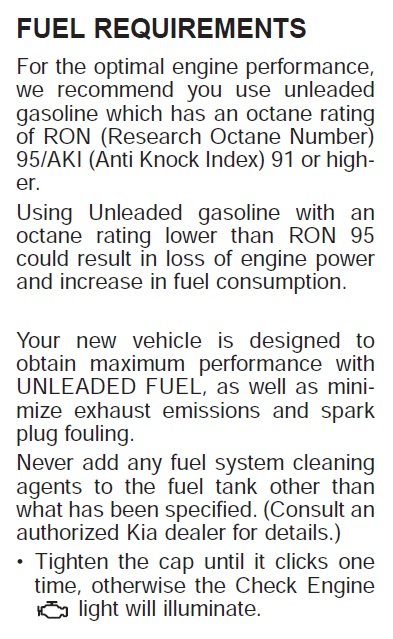- Messages
- 668
- Likes
- 51
- State
- NV
- Country
- United States
Interesting article. This may even apply to the Kia Stinger since it's only recommended to use Premium. You'll give up a little bit of performance but for commuters this maybe something to think about.
http://money.cnn.com/2017/12/12/autos/aaa-premium-gas-study/index.html
http://money.cnn.com/2017/12/12/autos/aaa-premium-gas-study/index.html
On average, the vehicles got 2.7% better fuel economy when running Premium gas. But that's just an average. The results varied from a 7.1% improvement in the big Escalade SUV to a 1% decrease in fuel economy in the small Audi A3.
That means fuel savings are not enough to offset the cost difference between Regular and Premium gas.
AAA also looked at horsepower output. On average, vehicles produced 1.4% more horsepower using Premium. It made the biggest difference in the V8-powered Mustang GT, which generated 3.2% more power using Premium. But the Jeep Renegade actually produced slightly less power when running on Premium.
That means fuel savings are not enough to offset the cost difference between Regular and Premium gas.
AAA also looked at horsepower output. On average, vehicles produced 1.4% more horsepower using Premium. It made the biggest difference in the V8-powered Mustang GT, which generated 3.2% more power using Premium. But the Jeep Renegade actually produced slightly less power when running on Premium.

